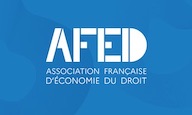Patent licensing represents an alley to participate in Markets for Technology (MFTs) and, thereby, to capture value from innovation. We distinguish two modes of patent licensing: integrated licensing, where the licensee is also the implementer of the patented knowledge; and bifurcated licensing, where the implementer of the patented knowledge is upstream from and a supplier to the licensee. We present empirical findings from a mixed-methods study drawing on 29 interviews with 28 diverse firms and the analysis of 1,892 patent licenses from diverse industries and geographies. We show under which conditions bifurcated licensing is likely to occur and which type of licensor are practicing it. As one important driver we identify the licensing of standard-essential patents. We contribute theoretically to research on value capture by suggesting antecedents of bifurcated licensing. For IP managers, we point out the need to consider the option of bifurcated licensing in their defensive patent strategies.
- Poster

 PDF version
PDF version

